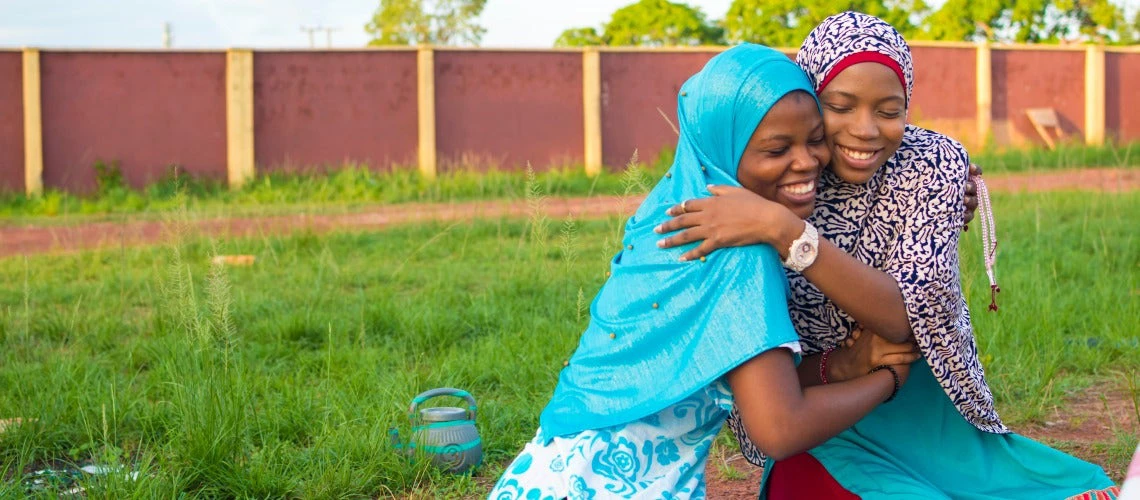 Most countries do not allocate enough resources to address mental health conditions, but community-based approaches can help. Copyright: Shutterstock
Most countries do not allocate enough resources to address mental health conditions, but community-based approaches can help. Copyright: Shutterstock
“Amidst the darkness, I have managed to find a glimmer of light. With the support of loved ones, professional help, and my resilience, I have been able to navigate through the challenges of depression. It is crucial to recognize the power of a strong support system, one that encourages open dialogue, empathy, and compassion. By breaking the silence surrounding mental health, we can create an environment that fosters healing and growth”. – Godfrey Kagaayi, Uganda Mental Health Advocate
Mental health conditions are a critical public health issue and are among the leading causes of morbidity and mortality worldwide, yet we are living in a society where talking about it invites discomfort and stigma. In 2019, one in every eight people globally were living with mental disorders, and those numbers significantly worsened due to the COVID-19 pandemic.
WHO estimates show an increase in anxiety and major depressive disorder of up to 28% globally. Furthermore, the pandemic had a worse effect on women and young people. Yet, countries allocate on average no more than 2% of their health budgets to mental health. And, according to WHO’s Atlas, 66% of total government spending on mental health is directed towards an outdated approach: psychiatric hospitals.
All countries can be considered as “developing” countries in the context of mental health, as all are lagging in addressing the growing burden. In this blog, we examine the mental health status in Latin America, the Caribbean, and Africa—where governments are increasingly vocal and keen to do more to address mental health. We are highlighting ongoing efforts and proposing actions for these regions and beyond.
Mental health in Latin America, the Caribbean and Africa
In the Latin America and Caribbean region, neurological and mental health disorders, including substance use and suicide, are major causes of disability. Major depressive disorders and anxiety disorders increased by 35% and 32%, respectively, in 2021. The suicide rate increased by 17% between 2000 and 2019.
About 10 percent of Africa’s population suffers from mental health disorders, with the growing burden impacting adolescents and children. Half of all mental disorders appear by the age of 14 and three-quarters by the age of 24. Because the African Region has 60% of the population below 24 years of age, investing in mental health would help preserve Africa’s human capital.
With a wide spectrum of competing health and development priorities, mental health remains under-prioritized in many African countries. On average African governments allocate less than 50 US cents per capita to mental health, well below the USD 2 per capita for low-income countries that would secure a basic package of mental health care.
COVID-19 disrupted or deprioritized the provision of mental health services. But it also unlocked new ways of approaching the high demands for these services, including centering them on the community-based approach and leveraging technology to increase access to quality care. The pandemic also unlocked the door for more open dialogue and action for mental health in these regions.
Prioritizing mental health
Countries of these regions are eager to address mental health challenges, but they still need to take transformative action to build stronger, more resilient health systems in which addressing the mental health of its people is a norm, not an outlier.
It is time to think differently about mental health and stop divorcing it from physical health. This can start with integrating mental health services at the first level of care and increasing investments. A paradigm shift from “health spending” towards “health investment” is needed, with this being applied to mental health as well. To accomplish this, countries can consider prioritizing:
- Services: The population needs for mental health support live on a spectrum, therefore interventions should too. In some cases, the focus will be on prevention and promotion, in others on acute treatment of a severe condition. Because resources and capacity for mental health services is low in most countries, investments ought to have room for flexibility, allowing communities to prioritize the most needed services, as opposed to suggesting national blanket solutions.
- Policies: Strengthening intersectoral coordination and support for mental health, including developing legal frameworks for effective policy implementation is crucial. Without backing at the highest level, and cementing by actionable policies, desired outcomes are very unlikely. Achieving sustainable results will require action from multiple stakeholders. Mental health is a reflection of the social, environmental, and political factors that surround us.
- Systems: Strengthening governance, human resources, information systems, and data, including surveillance to inform the action and sound investments toward achieving desired mental health outcomes are key for long-lasting results. For example, most countries have inadequate data systems, so services and financing are not provided where they're needed, which leads to poor mental health outcomes.
- Voices of people with lived experience included in the decision-making process: People living with mental health disorders are best placed to communicate how decisions made at the highest level affect those on the receiving end of those services, and how they can be improved. In the words of Vinicius Gaby, a mental health advocate in Brazil: “Civil society must become part of the planning. It is necessary to guarantee that decision-making power is shared with the local community. Consultative work is crucial, but working with the population needs to go beyond that and move into deliberate action. Meaningful work is done through collaboration and collaboration is built from sharing decision-making power, so that people can have a voice on, among other topics, policymaking and funding decisions for their health.”
The World Bank's support for mental health dialogue
Recent initiatives are helping raise these issues at the highest levels in Africa and Latin America and the Caribbean. In January of 2023, the Ministry of Health Chile and the World Bank, with the support of WHO, Pan American Health Organization, and Access Accelerated, hosted a high-level regional ministerial event on investing in health system resilience and mental health after the pandemic. Participating ministers of health and finance signed a Joint statement to commit to advance the agenda for investing in health system resilience and mental health and report back within one year to discuss initial progress and further plans inviting other countries and partners to join this effort.
In June 2023, the government of Rwanda in collaboration with the World Bank, and support from WHO, Africa CDC, and Access Accelerated, co-hosted a regional event and workshop to showcase achievements, share challenges, identify opportunities, and prioritize activities that will help address mental health in Africa.
The urgency for action at scale for the management of mental health is growing in these regions. With the support of Access Accelerated, the World Bank is supporting countries in the analysis of governance, financing, and provision of mental health services in LAC and Africa. Further, Africa CDC an institution driven by its member states, identified six strategic priorities to address the growing burden of mental health and other non-communicable diseases. Through their implementation with member states and partners, Africa CDC will set the benchmark and pace for real change.
To receive weekly articles, sign-up here




Join the Conversation